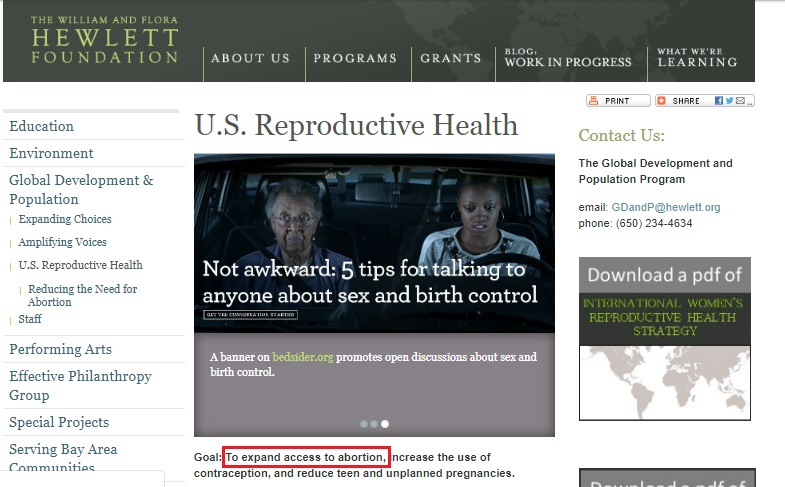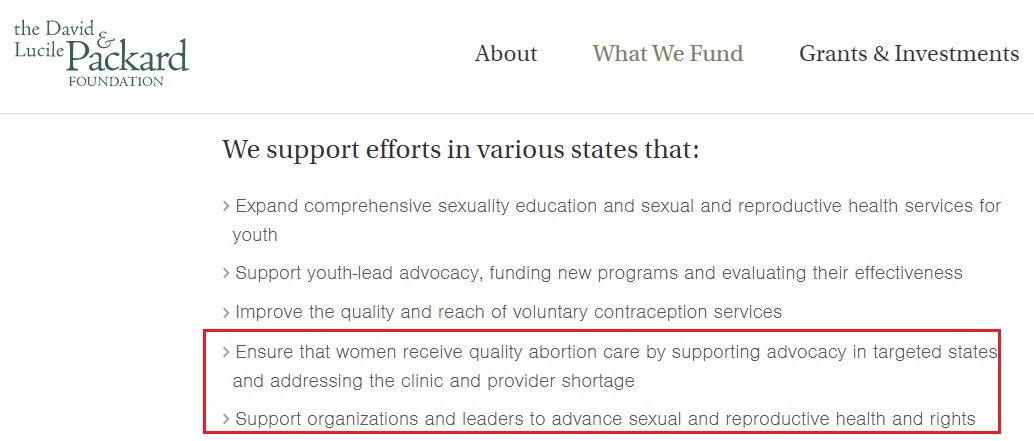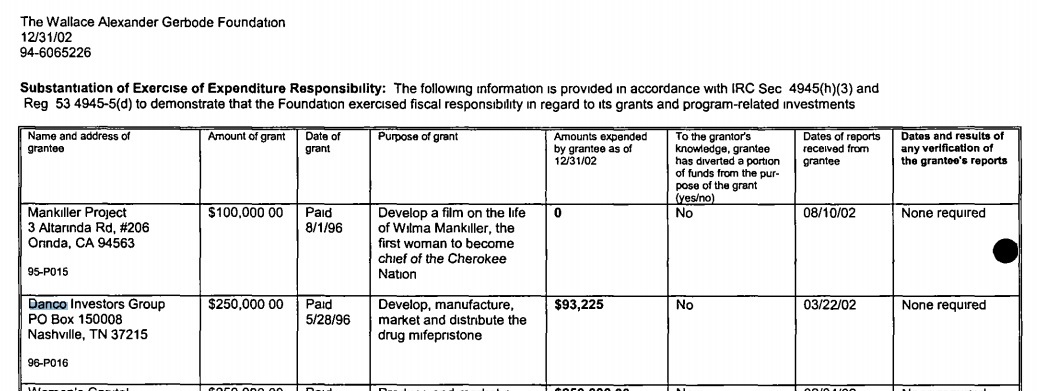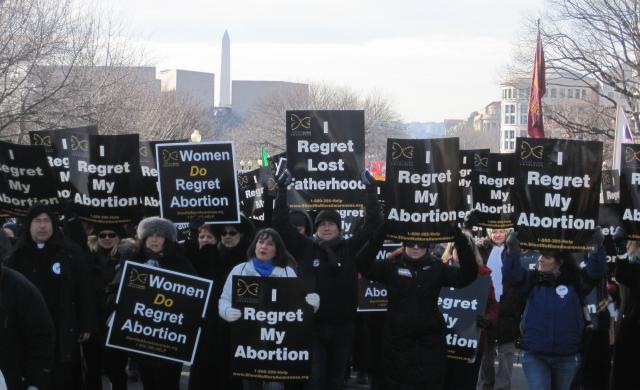An analysis based on flawed data gathered from the years-old, debunked Turnaway Study minimizes abortion regret by claiming that women do not regret their abortions, despite many women who have said they do.
The new analysis, published in the journal Social Science and Medicine, was conducted by authors associated with the pro-abortion University of California, San Francisco’s Bixby Center for Global Reproductive Health, and Advancing New Standards in Reproductive Health (ANSIRH).
The analysis looked at the attitudes of 667 women “who sought abortions at 30 US facilities between 2008 and 2010.” Keep in mind that nearly one million women have abortions every year, so this sample size does not represent a large portion of women by any stretch. The authors conclude that past claims of abortion regret rely “on a framework founded on paternalistic, and often religious, beliefs about women’s ‘nature’ and supposedly innate maternal desire that constructs abortion as inherently stressful.” In other words, they completely dismiss the testimony of large post-abortion groups like the Silent No More Awareness Campaign.
At National Review, Dr. Michael New of the Charlotte Lozier Institute points out how the older Turnaway Study has been flawed from the start:
… [L]ess than 38 percent of the women they asked who had obtained abortions actually agreed to take part in the study. It seems likely that the women who made themselves available for the study might have had either a higher level of decisional certainty or fewer moral qualms about obtaining an abortion, skewing the results.
Additionally, the Turnaway study tracked study participants over a five-year time period. Over time, a significant percentage of the women who originally agreed to participate either could no longer be contacted or refused to answer follow-up surveys. The new Social Science and Medicine article tries to downplay this fact, stating that 71 percent of the women completed an interview in the final two years of the study. However, a 2017 article in JAMA Psychiatry that used Turnaway-study data indicated that only 58.4 percent of participants had responded to a survey five years after it began. This information further skews the results, as it is likely that women who disappeared from the survey were experiencing more psychological suffering than women who responded.
At the time of the Turnaway Study’s release, Live Action News reported on the thorough debunking of the study, and yet, pro-abortion groups keep resurrecting it to serve their own agenda.
Aside from poor methodology, what are some other reasons to doubt the validity of this recent study analysis?
#1: Those directing the analysis are funded by those who have a financial interest in expanding abortion.
- ANSIRH, who directed the study, was founded by abortionist Felicia H. Stewart. ANSIRH publishes workbooks on abortion training and is part of University of California’s Bixby Center for Global Reproductive Health. In 2015, ANSIRH brought in Dr. Daniel Grossman as director, who is deeply embedded in the abortion industry and is leading the push to expand abortion in the U.S.
- The Bixby Center at UCSF trains abortionists and receives funding from a number of organizations collaborating to expand abortion.
- The University of California is heavily funded by investors of the abortion pill manufacturer, DANCO Laboratories, such as the Packard Foundation and Buffett Foundation, which gave $78 million to UC. In 2016, ProPublica revealed that “Buffett’s main academic partner (receiving at least $88 million from 2001 to 2014) has been the University of California, San Francisco…” where Grossman is on staff. UC is sponsoring clinical trials to expand abortion in U.S.
The Turnaway Study claimed to find:
- No evidence of emerging negative emotions or abortion decision regret
- Positive and negative emotions declined over the first two years and plateaued thereafter
- Decision certainty remained high and steady
- At five years post-abortion, relief remained the most commonly felt emotion
- Despite converging levels of emotions by decision difficulty and stigma level over time, these two factors remained most important for predicting negative emotions and decision uncertainty years later
But other studies have found:
- Women suffer long-term psychological pain after abortion (here)
- Women who have abortions are more likely to commit suicide than women who give birth
- Women who undergo abortions experience negative psychological consequences
Women regularly testify to abortion regret (here, here, here, here, here, here, here, here, here) to name just a handful.
#2: The analysis authors are heavily invested in abortion.
- Corinne H.Rocca: Assistant Professor, Department of Obstetrics, Gynecology & Reproductive Sciences at Bixby.
- Goleen Samari: Assistant Professor of Population & Family Health, Columbia Population Research Center and a former “Research Scientist” at UCSF, according to her LinkedIn Page and a graduate of Bixby. Her online bio states, “Prior to Columbia University, I was a research scientist at Advancing New Standards in Reproductive Health and the Bixby Center for Global Reproductive Health at the University of California San Francisco.”
- Diana G.Foster: Director at Bixby Population Sciences Research Unit. Live Action News previously reported that Foster who is on staff as research director at ANSIRH, and sits on the board of the Later Abortion Initiative (LAI), a group with the mission of “increas[ing] the number of sites where later abortion is available” and “expand[ing] the number of physicians who can perform later abortion, especially at 20 weeks’ gestation and beyond.” In addition, the organization’s mission also includes working with “communications, messaging and public relations experts to build support for later abortion and fight restrictions on later abortion at the state level.” Foster has been applauded by the abortion advocacy group NARAL.
- Heather Gould: Project Director at ANSIRH who “has been involved with the Bixby Center for Global Reproductive Health since it was founded.” According to her online bio, she “has worked in several reproductive health clinics as a manager or health specialist, including New Generation Health Center, Planned Parenthood Golden Gate, and the Marin County Women’s Health Services. In addition, she has served as a consultant to several organizations, including Planned Parenthood Federation of America-International (PPFA-I), the Association of Reproductive Health Professionals (ARHP), and Population Services International (PSI).”
- Katrina Kimport: Associate Professor, Department of Obstetrics, Gynecology & Reproductive Sciences at Bixby. She was described by UCSF on Twitter as “an abortion access advocate.”
#3: The funding for the new analysis came from foundations which promote worldwide abortion, and which fund the abortion pill’s manufacturer.
- The William and Flora Hewlett Foundation gives millions of dollars to abortion groups like NARAL, Planned Parenthood, and the National Abortion Federation. They fund pro-abortion Gynuity Health Projects, UCSF (known for its abortion training program), and the Guttmacher Institute (Planned Parenthood’s former research arm and “special affiliate”). A stated goal of Hewlett has been “to expand access to abortion.”

Hewlett goal to expand abortion
- The David and Lucile Packard Foundation‘s previous website made clear their goal is “expanding access to safe abortion.” Today Packard’s website says it exists to “ensure that women receive quality abortion care by supporting advocacy in targeted states and addressing the clinic and provider shortage.” The Foundation is a substantial donor to Planned Parenthood, the National Abortion Federation, and NARAL, and is an original investor in the abortion pill manufacturer, DANCO.

Packard Foundation goal to expand abortion US accessed 07052019
- The Wallace Alexander Gerbode Foundation also invests in DANCO (granting $250,000 in 2002, 2004, and annually), and grants large amounts of money to pro-abortion groups. Gerbode has been described by Inside Philanthropy as funding the “next generation of abortion doctors.”

Wallace A Gerbode Foundation funds Danco abortion pill mfg (2002)
- An anonymous foundation: We cannot know for certain who the study’s “anonymous donor” is — however, past research has exposed how the Buffett Foundation has been behind studies with “anonymous” financial support.
All of these same financiers funded the flawed Turnaway Study itself, according to a report from ANSIRH.
ANSIRH claims that, “The Turnaway Study started as a small pilot project funded by a seed grant from a private foundation.” Yet, neither the “private donors” nor the “private foundation” have been disclosed.
Of interest is the fact that for many years, UCSF’s Bixby program, where the authors have connections, and which conducted the Turnaway study, was also funded by these same three foundations.
- Wallace Alexander Gerbode Foundation (1999-2009).
- David and Lucile Packard Foundation (1999-2009, 2014-2015, 2015-2016, 2016-2017).
- William and Flora Hewlett (1999-2009, 2007, 2014-2015, 2015-2016, 2016-2017).
While the media willingly touts the recent analysis and the Turnaway Study as solid evidence that there is no such thing as abortion regret, they fail to point out who conducted and funded the study. Imagine if the media only regurgitated positive marketing studies put out by other industries. It is unlikely you will ever find a study on how many consumers “regret” their purchase of a Ford, a GE refrigerator or an iPhone conducted by, funded by, or published by Ford, GE or Apple. But, we all know consumers who regret their purchases… and similarly, abortion industry studies conducted and funded by industry insiders must be examined with skepticism.
Live Action founder and president Lila Rose noted in a press release:
A federally funded, U.S.based study found a 65% higher risk of clinical depression in women who had abortions, after controlling for age, race, education, marital status, history of divorce, income, and prior psychiatric state. And according to a study listed on the National Institutes of Health website, women who abort are five times more likely to be involved in drug and alcohol abuse. It’s why a big part of Live Action’s work is encouraging those who have been hurt by abortion to know that healing is possible and to speak out against it.
If you are a woman who has been hurt by abortion, you can share your story by visiting The Justice Foundation.
“Like” Live Action News on Facebook for more pro-life news and commentary!







